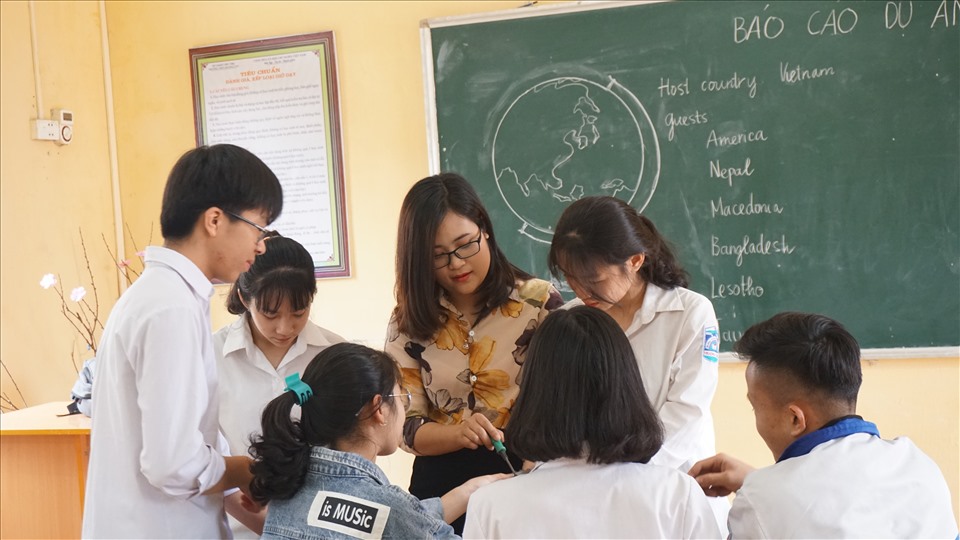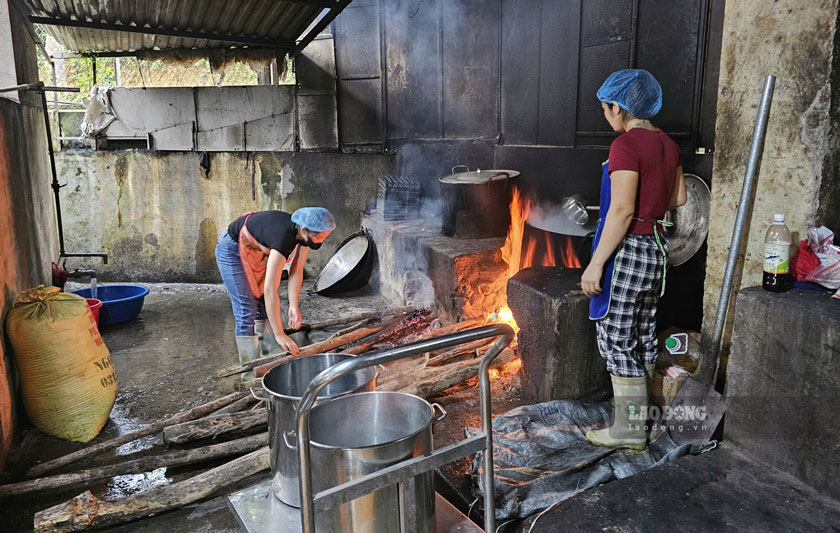Ministry of Education and Training: Research on amending school regulations, reducing pressure on teachers' records
Many National Assembly deputies said that teachers are under great pressure in terms of administration, records and books and emulation and rewards. The Ministry of Education and Training (MOET) said it will absorb and continue to reduce procedures, promote the application of technology, and review regulations on records and books to reduce the burden on teachers. The Ministry is also studying amending the school regulations, ensuring compliance with practice and general policies.
Regarding the treatment policy, many opinions suggest building a salary, allowance and promotion mechanism based on work performance instead of only based on qualifications and seniority. The Ministry of Education and Training said it is developing decrees to guide the Law on Teachers and the new salary policy, in which the appointment of professional titles will be based on the standards, achievements and job positions of teachers.
Regarding allowances, the Ministry of Education and Training said that current regulations still comply with Decree 204 2004 and the salary reform policy in Resolution 27-NQ/TW. Accordingly, vocational preferential allowances will be combined with other allowances to form "professional allowances", applied to areas with special working conditions such as education. Therefore, continuing to use the term "professional allowance" is in line with the new salary policy. See more...
The Ministry of Education and Training informs about the roadmap for raising allowances for school staff
Minister of Education and Training Nguyen Kim Son said that the Ministry is drafting a Decree on preferential allowances according to occupations for civil servants and employees in public educational institutions, implemented according to a roadmap of two stages. Phase 1 (2026-2030) will add a 20% allowance to school staff; increase by 15% for preschool and general education teachers; and increase by 5% for university and vocational education teachers.
Phase 2 (from 2031 onwards) is implemented according to the level prescribed in Resolution 71-NQ/TW. The Decree is expected to be submitted to the Government in 2025 to synchronize with the Law on Teachers.

Commenting on the roadmap for implementing the increase in allowances for school staff, delegate Ha Anh Phuong (Phu Tho delegation) commented that although school staff accounts for a small proportion, they play an essential role in operating schools from equipment, IT to safety and professional support. According to the draft Resolution of the National Assembly, the proposed minimum allowance is 70% for teachers and 30% for employees. Ms. Phuong proposed to immediately apply the 30% rate to employees from January 1, 2026 instead of following the roadmap, to avoid the situation where income is too low, causing many people to quit their jobs. See more...
motivation to maintain the fire of the teaching profession
Red kitchen fire on cold days to keep students in mountainous areas
During the cold winter days in the mountainous areas of Lao Cai, the boarding kitchen has become a "pill" to help students go to class regularly. The schools are located 7 - 15km away from the village, the slippery mountain roads make it easy for children to drop out of school. The boarding model helps maintain the score when students are allowed to eat at school, avoiding harsh weather and risks when traveling.
At Lang Nhi, Khau Ly or Lang Thip schools, teachers and kitchen staff have to wake up at 4-5am to prepare meals for hundreds of students, most of whom are children of poor households. The school arranges sleeping accommodation, warm blankets, nutritious meals, teachers take turns on duty, instruct life skills and take care of students like children. Thanks to that, students go to school more evenly, have better health and spirit.

Despite the lack of material conditions, many teachers initially had to go to the market and cook by themselves, but the boarding kitchen has brought clear results: students no longer miss the session, parents can rest assured to send their children. For schools in mountainous areas, hot meals in the middle of winter are not only a source of nutrition but also a "lifeline" to keep children going to school every day. See more...











